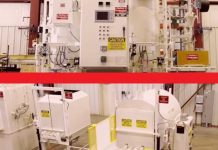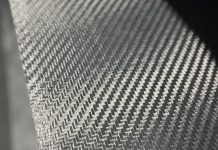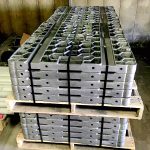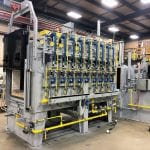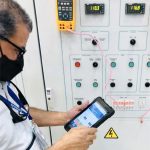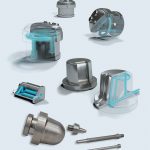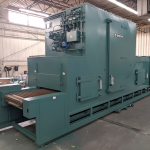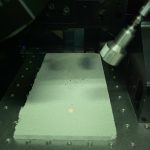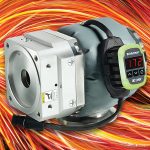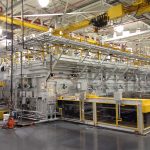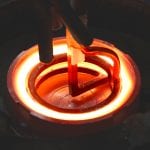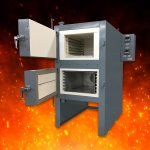To perform a proper heat treatment, technicians must ensure that the oven or furnace is operating at the correct temperature.
To that end, BASF Environmental Catalyst and Metal Solutions’ (ECMS) temperature sensing business manufactures top-of-the-line pyrometers, thermocouples, and other products that help its customers achieve those optimum temperatures.
“The EXACTUS® pyrometer was originally developed for semiconductor applications because of its characteristics specifically being so accurate, with such a large dynamic range and great long-term stability,” said John Grossi, technical sales manager for industrial products at ECMS. “There’s only a 0.1-degree C per year drift on this particular unit. It really lends itself to semiconductor applications.”
ECMS deals with very high-temperature applications for precious metals, according to Grossi.
“Our biggest application was in glass,” he said. “Because of the properties of precious metals and the accuracy of precious metals, it lent itself very well for molten-glass applications. Originally, we looked at the pyrometer and those types of applications, and then we just kept on expanding the industrial base — heat treating being one of them. We feel the accuracy and its low drift lends itself to a lot of applications in the heat-treating industry.”
Ensuring accuracy
A company being able to keep product runs stable is necessary to ensure accuracy, according to Patrick Sprinkle, plant manager for the Portland, Oregon, site focusing on the optical pyrometer product line.
“The end customer has to outfit their furnaces where they do some of the treating for the application, and so there are multiple units of ours looking at different zones, and they then leverage that information into their overall system,” he said.
ECMS’s innovative sensors allow the company to provide the most accurate instrumentation possible for the industry so their operations can run better, according to James Peterson, general manager of ECMS’s temperature sensing business.
And that means, according to Grossi, creating more and more precise sensors to meet an evolving industry.
“As instrumentation got more precise — especially data acquisitions — the industry needed actual equipment that could provide more precise measurements,” he said. “For us, specifically now, we find that the trend is people want to minimize downtime as much as possible. We really feel that our pyrometer can help customers with that specific application and help them reduce downtime and get them more productivity.”
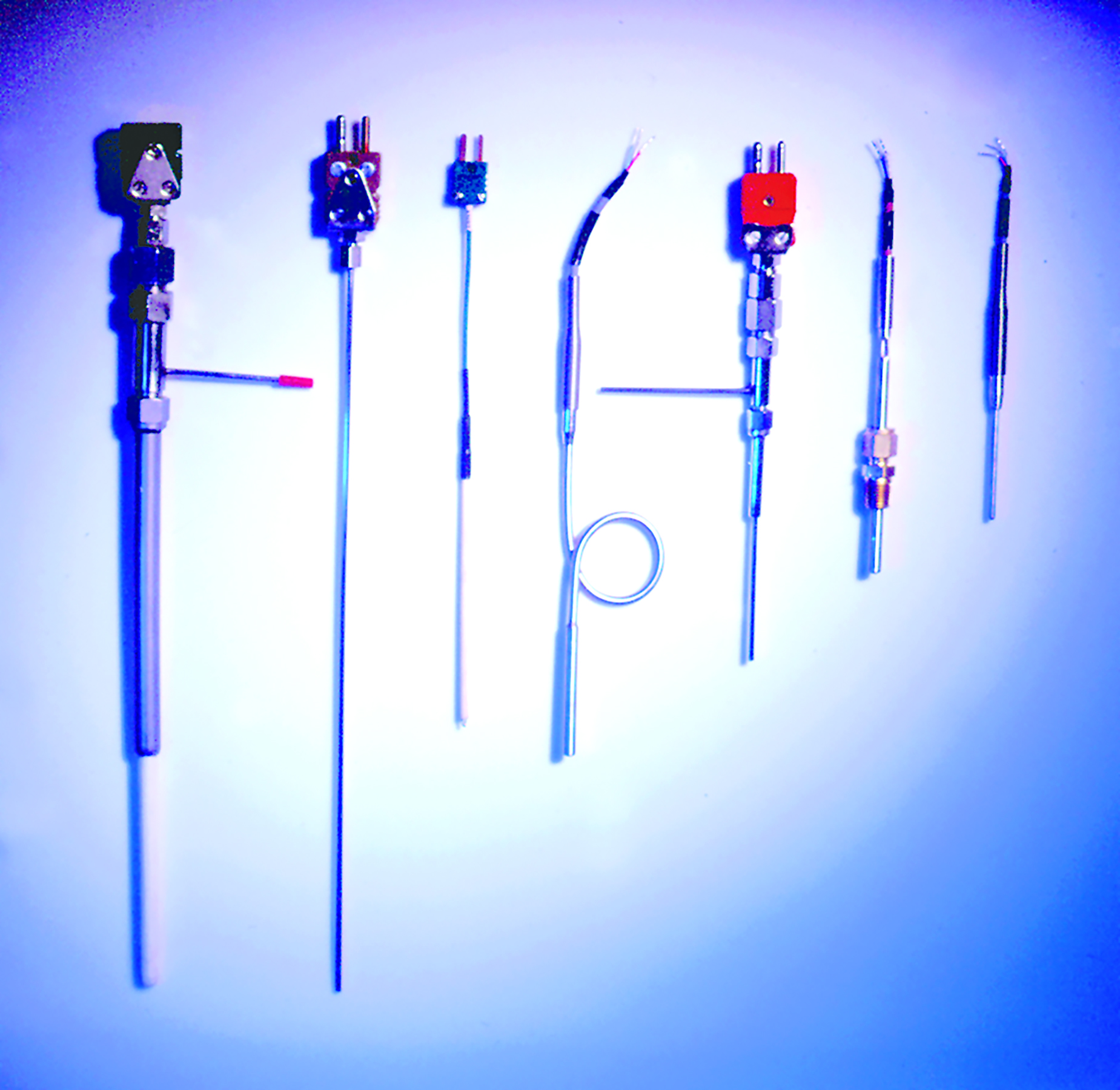
Accurate instrumentation
Meeting those goals boils down to a few aspects, according to Grossi. One is accuracy and stability, which means a company doesn’t have to perform a recalibration every year.
“I think that helps them significantly,” he said.
The other aspect is that ECMS offers very accurate instrumentation vs. its competition, according to Grossi.
“When they’re looking at precise monitoring of their product, we feel that we’re the best in the industry,” he said.
NIST approved
And Peterson said those aren’t just empty words.
“The reason we feel that we’re the most accurate is because the industry bodies also agree with us,” he said. “The NIST (National Institute of Science and Technology) uses our instruments for their calibration purposes.”
The NIST is where everyone sends their products to be calibrated if they want to be recognized, according to John Dowell, product development manager for the EXACTUS Optical thermometers.
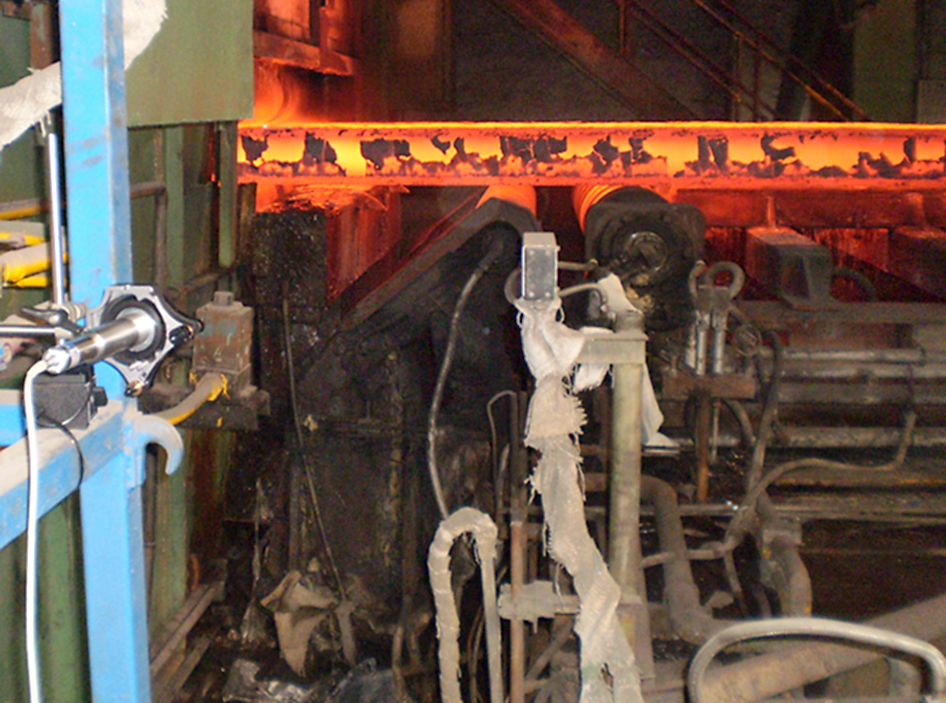
Working with customers
High-quality products don’t mean much if you can’t get them to the customers who will benefit from them the most, so that is where ECMS’s sales team comes in, according to Grossi.
“You have the first dialogue on what specifically the application is, and what their measurement problem is, but then we have the expertise from John Dowell and Patrick Sprinkle,” he said. “We’ll literally pick up our suitcases and go visit the customer at their site to look at their process.”
To aid in that, Grossi said the company has close to 200 years of combined expertise in a variety of vital applications.
“I feel that our real strength is in those high-temperature applications, especially when you’re lending it to high-temperature heat treating or hipping,” he said. “That’s where we really bring our expertise to the table. We don’t normally deal with very low-temperature applications, but in these high-temperature applications, by far, we’re the industry experts.”
Sprinkle agreed with Grossi.
“I think that sums it up really well,” he said. “Our temperature range is typically something like 400 Celsius up to about 3,000 Celsius, just for some perspective there. We’re not exactly looking at molten chocolate here. Just to give you an idea, one instrument has a very large dynamic range vs. other instruments in the field. I think for some other instruments to cover that dynamic, that range, you would almost need two of their pyrometers vs. one of ours.”
And although ECMS’s pyrometers can monitor lower temperatures, Peterson said the equipment is better suited for higher temperatures.
“We do go to lower temperatures, but what happens is the lower in temperature you go, the lower the max is,” he said. “Most of the time in heat treating, you care about hot temperatures, not low stuff. There are applications where we can go down to nearly room temperature, but that’s an aside, just letting you know that there is a breadth of product, but we’re focusing on — or at least talking about — the higher temp applications.”
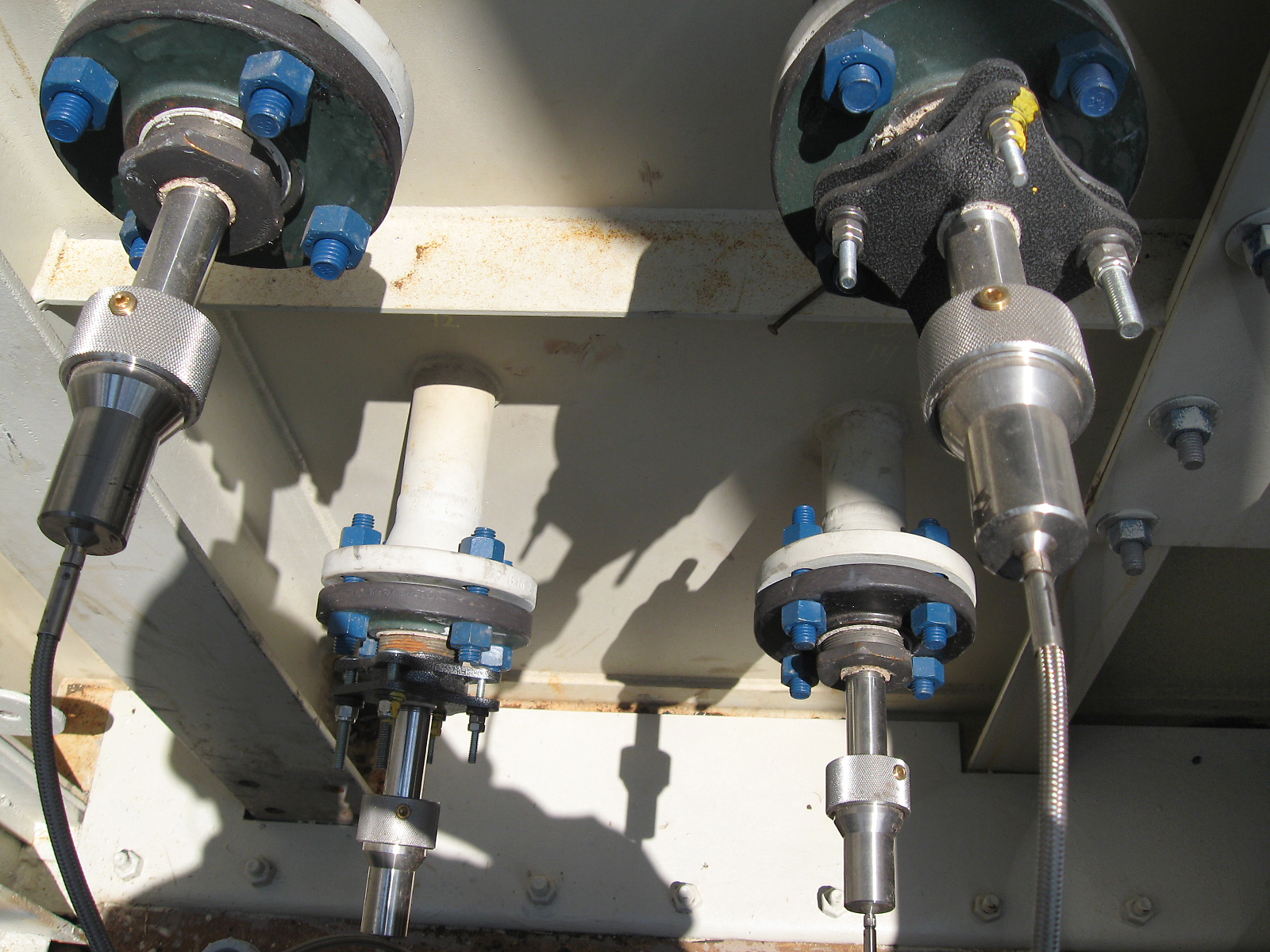
Impressive history
BASF has been around for decades, so it stands to reason the company has a few products that it is proud of, but none so much as the catalytic converter, according to Peterson.
“We invented the catalytic converter, and we offer full loop recycling,” he said. “Along with the catalytic converter and full loop recycling, one of the things that most people don’t realize is that it’s a very good sustainability story when you think about the billions of pounds of pollutants that product alone has cleaned up from the atmosphere in tailpipe emissions.”
What ECMS does was part of an acquisition in 2006, when BASF purchased the Engelhard Corporation, according to Sprinkle. This company was part of the mobile emission catalytic converter invention, as well as the refinement of platinum-group metals and chemical process catalysts. Today, ECMS is comprised of two businesses — precious metal services and recycling and mobile emissions catalysts.
“And our business, which is involved around temperature sensing and part of precious metal services and recycling,” he said.
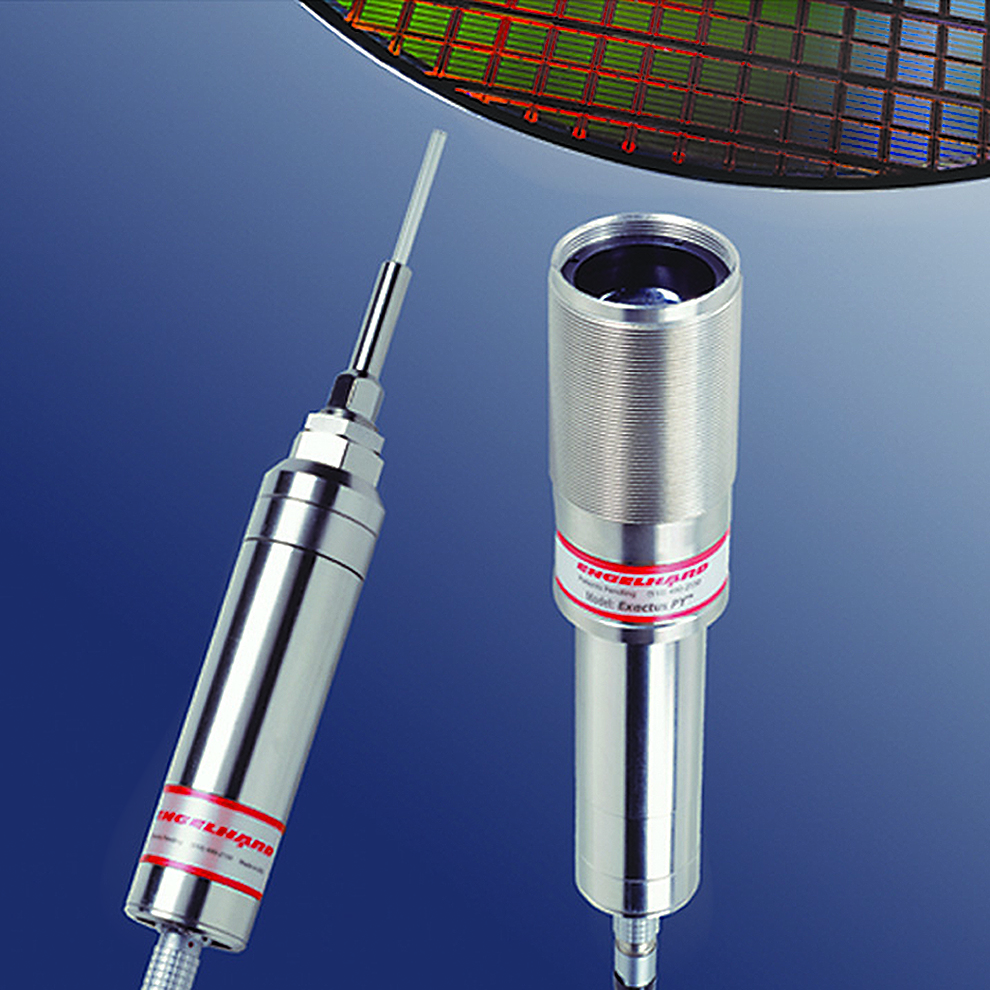
Future plans
Being environmentally conscious has been a part of who ECMS is for a long time, so as the company looks to the future, Peterson said he expects that aspect of ECMS to continue.
“From my perspective, I think the industry, like a lot of industries, is going to focus on: How do they reduce their carbon footprint? And how do they accomplish the same heat-treating goals while minimizing their energy consumption — minimizing maybe the temperatures that they have to operate in? Is there a different way to achieve that?” he said. “Our piece in that is, as they push the envelope in terms of how they operate their facilities, our instrumentation will allow them and enable them to at least be able to have tighter process controls. Our small part of that is going to be on the instrumentation part of it.”
Being able to reduce the need for precious metals will be a part of that, according to Dowell.
“As you get into more exotic materials and you’re pushing the envelope with even higher and higher temperatures, that’s where we can lend — both pyrometry-wise and thermocouple-wise — our expertise to achieve more accurate and better temperature measurement readings,” he said. “That’s our game. We measure high temperatures very accurately.”
Reducing the need for precious metals
And that’s important from the thermocouple side, where ECMS has made significant strides in helping customers reduce the amount of precious metals needed.
“A lot of our customers are trying to make a high-temperature thermocouple with less precious metal, and yet still achieve the longevity and the accuracy that they require,” he said. “We believe ECMS is ahead of our competitors technology-wise. We have proprietary materials that help our customers achieve that goal, by reducing the precious metal while maintaining the overall life and the accuracy of the thermocouple.”
Because of that and more, Sprinkle said he expects ECMS’s temperature-range accuracy to continue to shine.
“We’ve found that in the semiconductor sector — and we believe it to be true in other applications as well — that when this technology was first implemented, it was way ahead of its time,” he said. “We’ve really seen a huge uptick in our sales and growth in the last few years as a result of people finally being able to make full use of it. We expect to see that in other applications as well.”










